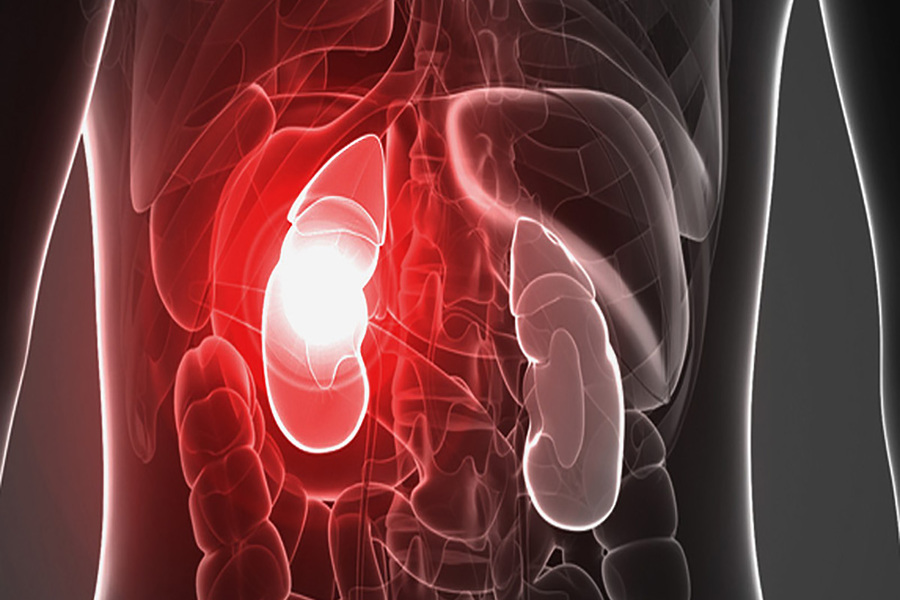You have two kidneys of the same size which are found near the middle of your back, just below the rib cage. Kidneys are made up of millions of tiny structures called nephrons that filter your blood and remove toxic substances from it, waste and extra water. Kidneys also regulate pH, salt and potassium level in your body and make renin that helps manage your blood pressure. They produce hormones that regulate your blood pressure and control the production of blood cells. Kidneys also make a chemical called erythropoietin that promotes the production of oxygen-carrying red blood cells or RBCs. Most kidney diseases attack nephrons. Damage to liver may be caused by diabetes, high blood pressure, and other long-term conditions.
The most common form of kidney disease is chronic kidney disease (CKD), which is a long-term condition that does not improve over time. Chronic liver disease is often caused by high blood pressure or hypertension. High blood pressure increases pressure on the tiny blood vessels in your kidney, called Glomeruli. Consistent increased level of blood pressure results in a decrease in liver function over a period of time. The person may eventually require dialysis to filter extra fluid and waste from the bloodstream. Dialysis helps treat kidney disease but does not cure it.
Kidney stones
Diabetes is a major cause of chronic kidney disease because increased sugar levels in the blood damage blood vessels in the kidney over time. So, your kidneys won’t be able to filter your blood as efficiently, and your body will slowly become overloaded with toxins. Kidney stone is another common liver problem. It occurs when minerals and other substances in your blood crystallize in the kidneys, forming a solid mass, commonly called stone. Kidney stones normally come out of the body through urine which can be extremely painful but they rarely cause any significant problem to the patient.
Urinary tract infection
Urinary tract infection (UTI) is a bacterial infection in the urinary system, most often in the bladder and urethra. UTI is easily treatable and rarely leads to more health problems. However, if not treated, the infection can spread to kidneys and lead to kidney failure. Polycystic kidney disease is a genetic disorder that causes cysts (small sacs of fluid) to grow in the kidney that interfere with kidney function and may cause kidney failure. Note that individual kidney cysts are fairly common and almost harmless while polycystic kidney disease is a more serious condition.
Symptoms of kidney disease
Symptoms of kidney disease include high blood pressure, loss of appetite, fatigue, nausea and vomiting, swelling in feet and ankles, and chest pain. In fact, you may not feel any symptoms until the disease has advanced because the symptoms manifest slowly over time.
To minimize the chances of getting infected with kidney diseases, keep your blood pressure within the normal range of 140/90 m Hg, control your blood sugar levels if you are diabetic, lose weight if you are overweight, stay physically active, as it will help control blood sugar level and high blood pressure.
Diagnosis and treatment
Your kidney disease may be diagnosed with the help of blood tests, urine tests, imaging tests such as ultrasound, or a kidney biopsy, where tissue from your kidney is analyzed to ascertain the cause of kidney problem. Based on the diagnosis, your doctor may prescribe you medicines like angiotensin II receptor blockers. Take them as instructed by the doctor. You may be asked to undergo dialysis wherein the waste is removed from your body by the dialysis machine. Kidney transplant may be performed if rare cases, and you will then have to take medicines for the rest of your life to ensure that your body does not reject the new kidney. The donor can be a living or deceased.

